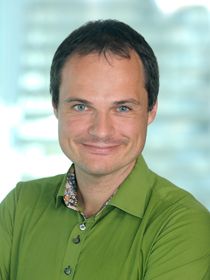Participants of the Interreg Europe project met with Lower Austrian pioneers in Krems from 17 to 19 May 2022. The international project meeting - which took place in Krems an der Donau and St. Pölten - was framed by the topics "digitalization, cooperation and specialization“, which were identified as the basis for regional growth, and as such in focus of the project's research interest.
Regions surrounding metropolitan areas ("Next to Met") often face a lack of research, development, and innovation. SMEs often struggle to keep highly qualified people in the region. Next2Met concentrates on these areas surrounding metropolitan areas because they not only offer advantages, but moreover experience challenges due to shortages in attracting and retaining knowledge, people, and capital. Foremost among the project regions is the area around Helsinki (Finland), Germany's Mecklenburg-Vorpommern, which is holding its own against Hamburg and Berlin, Ireland's Eastern Midlands outside Dublin, the Podlaskie surrounding Warsaw, and the districts around Barcelona. Lower Austria is also among these project regions, already having positioned itself as a location for research, education as well as business and striving for continuous improvement through international networking and cooperation.
The University for Continuing Education Krems and IMC Krems
Stefan Oppl, Dean of the Faculty of Education, Arts and Architecture at the University for Continuing Education Krems, and his team around Prof Tobias Ley, Head of the Center for Digitalization in lifelong Learning, and Prof Michael Reiner from the Department of Lifelong Learning at the IMC Krems, who left interesting impressions with the application examples of Virtual Reality in his "eVRyLAB", played a key role when lively exchanging ideas on the topic of "meaningful digitization in education and training".
At the Department of Continuing Education Research and Educational Technologies, specific research is conducted in the Interreg project "Digital Village" (https://digivil.eu) on the benefits of digitization for rural development and the promotion of virtual working and learning spaces. There are currently specific support tools and learning materials developed and evaluated in the DigiFit4All, CodeAbility, Teacher Innovation Laboratory and DigiCulTS projects. All these projects were the subject of lively discussions, in which a number of opportunities for further joint activities were found.
Prof Beate Cesinger, Dean of the Faculty of Technology & Economics at the New Design University St. Pölten and Professor of Entrepreneurship and Innovation there, provided input on how to successfully support SMEs/ individual entrepreneurs in their often-deadlocked processes through a change of perspective. Further valuable insights were given into the cooperation with Lower Austrian actors in the framework of the project TIN (Transdisciplinary Innovation Network).
